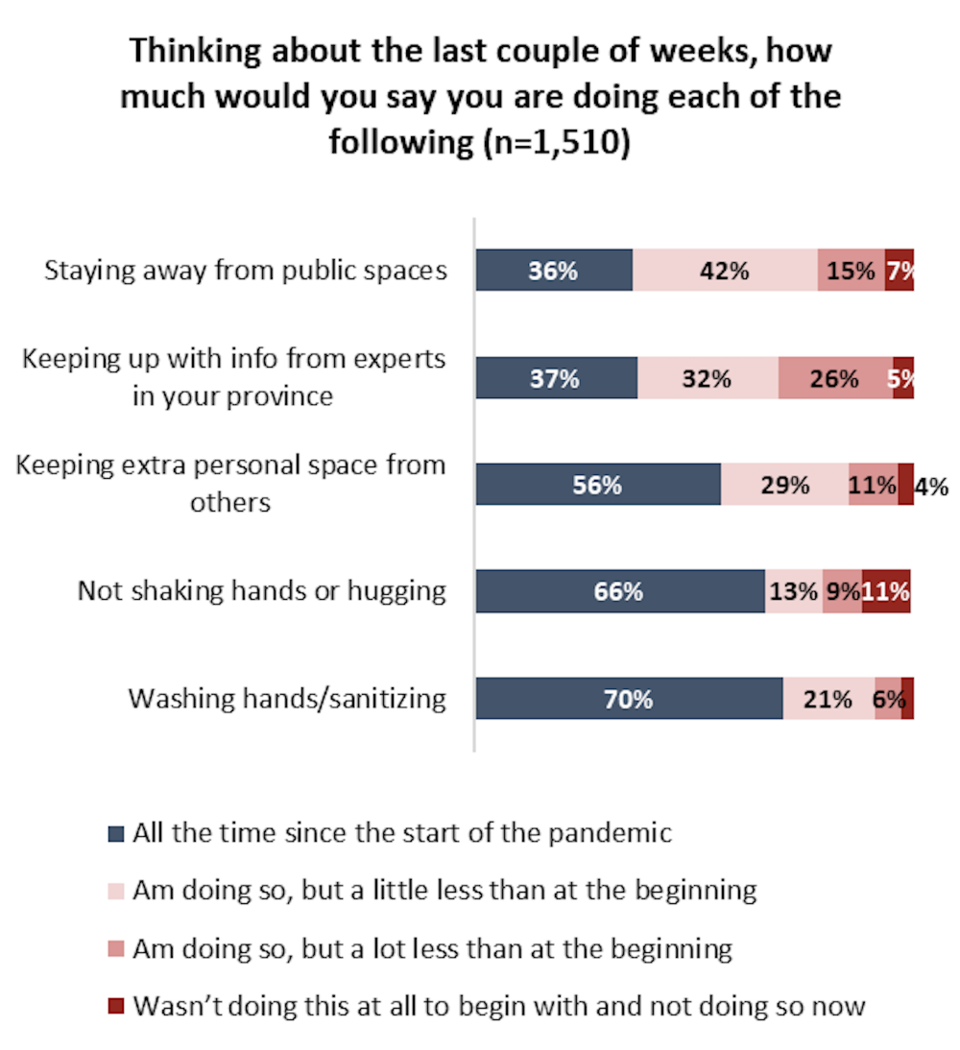Are you still practicing safe physical distancing whenever you leave your dwelling?
A new study finds that a sizeable number of Canadians aren't as stringent about following certain behaviours aimed at preventing the spread of the coronavirus.
And, with summer mere days away, public health officials worry people may become even more lax about physical distancing and other public health measures. For example, a number of photos taken at Vancouver's beaches over Mother's Day weekend have some people questioning if the distancing rule is being followed.
Compiled by the non-profit Angus Reid Institute, the study finds that just 36 per cent of Canadians now say they are staying away from public spaces as much as they were in the early days of the outbreak, while 56 per cent are continuing to keep extra space from others as much as they were earlier this spring, despite it being one of the key aspects in preventing community transmission of the disease.
This comes as Canadians are most likely to report that they have been feeling “fatigued” (31%) and “anxious” (28%) over the last few weeks.
With this in mind, Ontario residents are most likely to say they’re keeping up with social distancing (64%) just as much as they were in earlier weeks of the pandemic.
Report authors note that as COVID-19 infection rates continue to trend downward, the number of Canadians who say they are worried about contracting the virus drops, too. In fact, the number of those people who are worried dropped from a peak of 73 per cent in early April to below half (46%).

The study also highlights how Canadian youth are least likely to follow the advice of health officials. Those in the 18 to 34-year-old cohort are least likely to be following recommended advice and much less likely to voice personal concern over becoming sick.
Canadians under 55 were also more likely to feel "worn out or fatigued than older Canadians." Further, women 18 to 54 are most likely to feel anxious, while men 55 and over are most likely to feel optimistic.
The study also found that, "Two-in-five Canadians (41%) say the worst of the health effects in Canada are yet to come," but that the majority of the country (59%) feel that the country has made it through the most difficult time of COVID-19.
Read the original article here.



